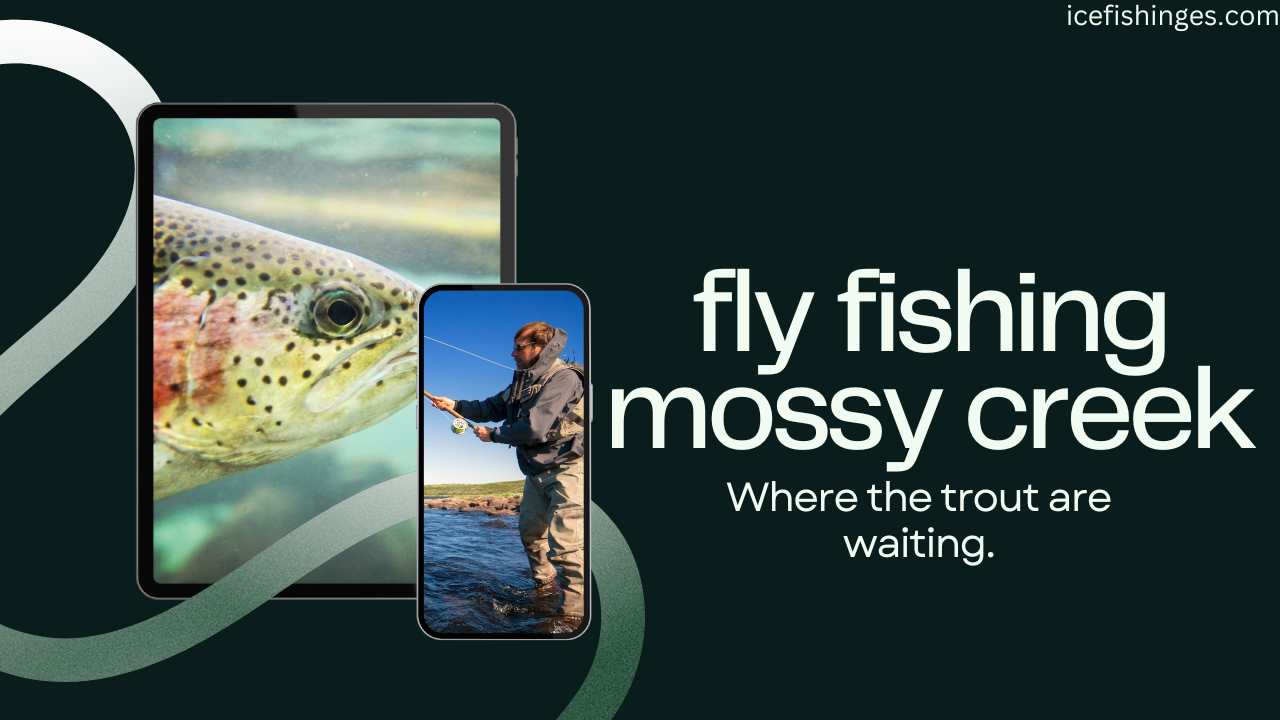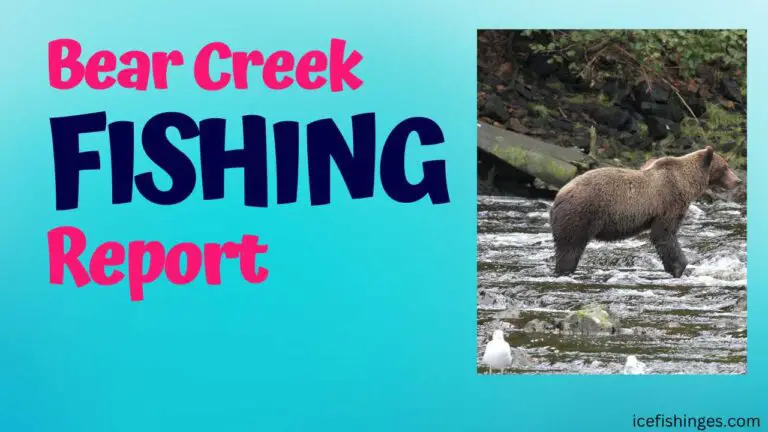Fly Fishing Mossy Creek 2024: Master the Mossy Creek
Experience the thrill of Fly Fishing Mossy Creek with our knowledgeable team and high-quality products. Unleash your passion for angling with us!
Introduction to Fly Fishing Mossy Creek
I am a fly fisher by passion, and there has always been something about Fly Fishing Mossy Creek that combines tranquility with excitement. It is a feeling of awe as one stands waist-deep in the clear river, casting a subtle bait towards an age-old trout. Mossy Creek is one of the most beautiful places for fly fishing.
Mossy Creek is a dream place for every angler who loves to fly fish. This stream remains undeveloped; it has plenty of wildlife and scenic landscape, thereby being referred to as a Mecca for anglers all over the world. To grasp how I discovered fly fishing Mossy Creeker and help you as well, we will go through my entire journey on this one.
Understanding the unique characteristics of Mossy Creek
The name speaks of lushness; mosses cover warm springs where life teems at the mossy creek. While I do not know specific examples because its location is unknown, here are some unique things that can be found along MoCreekreek
Habitat and Ecosystem:
Spring-Fed: Constant inflow of groundwater makes spring creeks cooler and clearer than other streams, thus creating specific habitats for certain fish species or insects.
Limestone Influence: Spring creeks flowing through limestone beds have high alkalinity or hard water, which determines which aquatic life gets established in the stream.
Riparian Zone: Insect shade plants could surround the river bank. The river bank may have plant cover serving as habitat shade for insects besides being a food source for them.
Fish species
Trout Haven: The populations of wild trout are abundant in many spring creeks, especially brown trout or brook trout, which are known for their bright colors, being elusive, and demanding clean, cold water.
Other Species: Depending on where Mossy Creek is located or how large it may be, it also might support other types of fishes like sculpins, minnows or darters.
Challenges and considerations
Delicate Ecosystem: Because of their fragile nature, spring creeks can be easily disturbed. Things like water temperature, pollution, and human activities can influence them greatly. You should exercise catch-and-release practices while minimizing your impact on the stream.
Selective Feeders: The resident trout in spring creek are usually selective feeders due to the clarity of the water and limited availability of food resources. Therefore, it is important to know what kind of bugs hatch here and to use that information while choosing flies according to techniques one plans to employ when fishing in these waters.
Technical Fishing: When dealing with spring creeks, delicate presentations often work best; long leaders with fine presentations are required to deceive wise trout.
Equipment and Gear for Fly Fishing Mossy Creek
To get into the fly fishing world of Mossy Creek, you would need specific equipment and gear. A well-proportioned combination of a fly rod plus a reel is vital in making accurate as well as delicate casts. Since it is versatile enough for different situations while fishing, the 9-foot 5-weight rod works well on Mossy Creek.
While considering fly lines, weight-forward floating line is still the choice of many anglers on mossy creek. It helps one to cast accurately and control the fly line better. However, when fishing in Mossy Creek itself, most situations will call for a 9-foot tapered leader with 4X or 5X tippet materials.
Mossy Creek’s immense insect life means that there should be plenty of flies in your fly box. Some key patterns include Adams, Elk Hair Caddis (EHC), Blue Winged Olive (BWO) and Pheasant Tail nymphs. You could also try out some local patterns or match the hatch if you want to increase your chances of success.
Fly Selection and Techniques for Mossy Creek
Fly Selection:
Match the Hatch: Being spring creeks, hatches are usually predictable, so knowing which insects will be hatching during your visit is very important. Spring creeks’ usual hatches include Trico spinners, Blue Wing Olives (BWOs), and Sulphur’s.
Size Matters: Trout in Spring Creeks can be quite selective feeders therefore it’s important to use flies that come in the right size (usually from 14-24).
Dry Flies: Dry flies would be preferable since most grasshoppers fished on slow-moving sections of water where visibility was high, and these rivers were very clear. The popular choices are Parachute Adams parachute dry fly, Blue Dun dry fly, Elk Hair Caddis dry fly, and Trico Spinner imitation.
Nymphs: Tiny nymphs can be effective especially during hatches or at times when the fish aren’t rising. Good examples include Pheasant Tail Nymphs as well as Hare’s Ear Nymphs along with Bedhead Nymphs.
Streamers: Small streamers can be effective for larger trout, especially in deeper pools or runs. Wooly Buggers and Sculpin patterns are good choices.
Techniques:
Presentation is Key: Delicate presentations are crucial in fishing spring creeks. Long leaders (9-12 ft.) with light tippets (5X or 6X) are commonly used for drag-free drifts.
Mending: Mend your line as your fly drifts downstream to keep it drag-free and looking natural.
Casting Techniques: Use gentle roll casts or upstream casts to minimize spooking the fish.
Fish the Pocket Water: Focus on areas with faster currents and structure like riffles, runs, and undercut banks where trout are more likely to be feeding.
Wade Stealthily: Spring Creek trout are easily spooked. Wade carefully and avoid making loud noises.
Seasonal Variations and Fishing Strategies
Different times of the year offer a unique experience at Mossy Creek which comes with its own set of challenges and opportunities. In spring, caddisflies and mayflies hatch in large numbers on the creek providing an ample food supply for the trout feeding frenzy. This would be a great time to concentrate on dry fly fishing that imitates emerging insects from water surfaces.
During summer, hot temperatures make Mossy Creek’s trout retreat into deeper pools and shady areas. During this time, nymphing becomes very productive because most fish will feed below the surface as they don’t spend energy rising to eat flies from above water level. When packing your fly box before going out, be sure you can choose from weighted nymphs as well as small streamers.
As autumn sets in, the foliage surrounding Mossy Creek starts to change, creating a stunning backdrop for your fly-fishing escapades. It is during this time that larger trout become more active and aggressive ahead of the cold winter months. Streamers imitating baitfish such as shiners, as well as larger nymph patterns, are effective in enticing these trophy-sized fish.
Winter on Mossy Creeks is challenging but highly rewarding for a dedicated angler. Fish become more lethargic, whereas snowfalls often limit access to river banks due to thick ice coverings and thus reduce the chances of landing any catch. However, if you dare confront the elements, you might find yourself alone by your favorite creek in the company of a few giant trout.
Local Regulations and Permits for Fishing Mossy Creek
Before fishing in Mossy Creek, Shenandoah Valley, Virginia, make sure that you know all the local regulations and have obtained all the necessary permits. It is a special trout stream where special regulations protect the quality of its fishery. These can generally include catch-and-release only policies, bag limits on the number of fish caught or kept, and their legal size restrictions depending on the seasons one is allowed to fish.
Apart from regulation, it should be realized that there are landowners along Mossy Creek who need to be respected and permission to be obtained before trespassing into private property lines. Many sections of the creek flow through private lands; hence, walking through them can lead to legal problems or even spoil the image of fly anglers everywhere. In fact, always observe common courtesy, carry out environmentally friendly activities, and consider the feelings of other people around.
Safety Tips and Precautions While Fly Fishing Mossy Creek
Even though fly fishing on Mossy creek provides a peaceful way to spend some leisure time, safety should always come first. Wading can be dangerous, especially in fast-moving water places or slippery rocks areas. To avoid slipping accidents, wearing a wading belt is crucial, and using the wading stick for support purposes only. When buying boots for wading go for those fitted with felt soles or rubber ones having good grip properties. Well-thought risks must, therefore, depend on the depth/speed of water involved.
Also remember to watch out for snakes, wildlife or low-hanging branches. For unforeseen events carry first aid kit, some insect repellent and sunscreen. Lastly, somebody should know of your fishing plans including when you plan on coming back home if you are going alone.
Popular Spots and Hidden Gems on Mossy Creek
Although Moss creek provides a great chance for anglers who love fly fishing, there are several special pockets that they have to explore if they want something different from what others always do here. An example is the “Bend Pool,” which has a deep hole where some of the largest trout in the creek can be found. There is also a hidden gem found in “Riffle Run” that contains fast-moving water suitable for nymphing and streamer fishing. These unexplored areas are known to hold large numbers of fish, including trophy trout.
Guided Fly Fishing Trips and Instructors in the Area
In case you are new or wish to up your game in fly fishing, there are several guided trips and instructors located within Mossy Creek. The local knowledge, tips, and techniques provided by these experienced guides and instructors can help one make the most out of his/her time on the water whether he/she is just starting or has already become an expert angler. Actually, taking a guide trip or taking lessons will increase your experience of flyfishing in Mossycreek.
FAQs
Do I need a fishing license to fly fish on mossycreek?
Yes, visitors should have legal identification before entering Mossy Creek River. Therefore, before you leave your place, always check with the local regulations.
What are the best times of the year to fly fish on Mossy Creek?
Though traditionally mossy creek Virginia fly fishing has been considered a spring and fall activity, each season offers different opportunities for angler. You can catch fish in all season long using right techniques and patterns: this allows one to exploit every opportunity that presents itself.
Can I fish Mossy Creek without requiring a guide?
While it is possible to go fishing in Mossy Creek without hiring a professional guide, there are several advantages associated with having one. A hired guide will be able to provide you with up-to-date information about the local area, offer private access to certain sections of the creek or other waters close by, and provide personalized training tailored specifically to your capabilities and experience level.
Conclusion and Final Thoughts on Mastering Fly Fishing Mossy Creek
Every angler should try his hand at Fly Fishing Mossy Creek. No other trout-abundant fishery compares to Mossy Creek when it comes to exceptional peculiarities joined up hidden spots that would make someone feel like an artist practicing fly fishing in another dimension. The details about how this is done are yet to be disclosed; however, certain things would need a person either understanding or knowing them properly, including some skills necessary for tying flies right, owning correct equipment, and employing suitable methods. Therefore, go take your rod and tie on a fly just as you begin exploring what makes fly fishing at Mossy Creek so special.
Note: This article does not intend to cover all aspects of Fly Fishing Mossy Creek comprehensively. For updated information and adherence to law consult recent sources plus local authorities who can help follow local rules & regulations.







